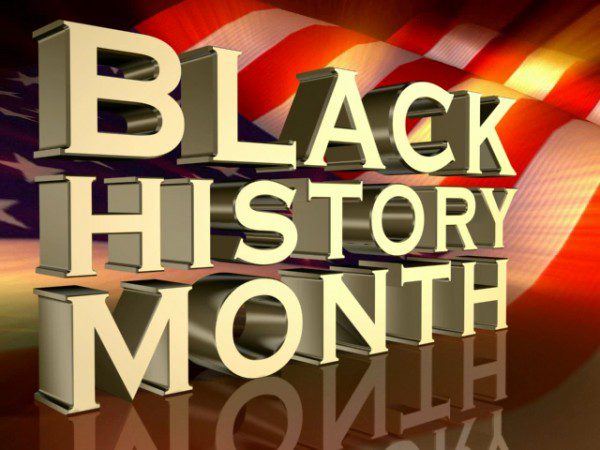
WHAT IS BLACK HISTORY MONTH?
Black History Month is an observance of the history of the African diaspora in a number of countries outside of Africa. Since 1976, it is observed annually in the United States and Canada in February, while in the United Kingdom it is observed in October. In the U.S., Black History Month is also referred to as African-American History Month.
Black History Month was begun as Negro History Week by historian Carter G. Woodson in 1926. His goal was to educate the American people about African-American history, focusing on African Americans’ cultural backgrounds and reputable achievements.
When Carter G. Woodson started Negro History Week, his purpose was for the history of African Americans to become considered a more significant part of American history as a whole. According to historian John Hope Franklin, Woodson “continued to express hope that Negro History Week would outlive its usefulness”. The purpose of Black History Month is to promote awareness of African American history to the general public. It is arguable that despite the opinions of several critics, Black History Month has several advantages, and to an extent, Woodson’s hopes were realized. During Black History Month, African American history is taught to thousands of students at the elementary, high school and university levels respectively. African American history is an extremely important part of American history, and it is almost impossible to find an American History textbook that does not include passages about black history.
The 2012 Annual Black History Theme: Black Women in American Culture and History
From the American Revolution to the present, African American women have played a myriad of critical roles in the making of our nation. Their labor and leadership, their motherhood and patriotism, and their intellect and artistic expression have all enriched both the African American community and the nation at large. In slavery and freedom, their struggles have been at the heart of the human experience, and their triumphs over racism and sexism are a testimonial to our common human spirit.
In American culture today, many know of the accomplishments of a few prominent figures. From Phyllis Wheatley, the unlikely American patriot during the Revolutionary War, to Harriet Tubman, the leader of the Underground Railroad from slavery, to Ida B. Wells, the unyielding opponent of lynching, to Rosa Parks, the mother of the modern Civil Rights Movement, black women have been notable for standing against oppression. From Gwendolyn Brooks to Toni Morrison to Rita Dove, they have distinguished themselves in American letters, and in recent years they have been recognized as actors and recording artists with Academy Awards and Grammys.
The accomplishments of these exceptional women are the expressions of a vibrant culture in which African American women play a singular role. The labors, struggles, organization, and sacrifices of common women have made possible the prominence of heralded individuals. In churches, community groups, literary societies, sororities, and advocacy organizations, African American women have been the core of organized black life, but here their strivings have often escaped the gaze of the public and hence their history is too little known.
Their story is unique in the annals of American history. Black women were held as slaves and middle-class black women labored while their counterparts were housewives. Subjected to a long history of stereotypes about their sexuality, morality, spirituality, and intellect, African American women have never succumbed to victimhood and have pressed forward to uplift themselves, their families, and their community. To gain an understanding of the history of African American women is to broaden our understanding of a people and the American nation.
Why is Black History Important?
It’s important to remember, acknowledge and celebrate black history!
We need to recall and remember to some degree the trials, the triumphs and the pride of a people who have not only overcome tremendous odds to survive, but also pursued and accomplished much with great success, even at overwhelming costs.
So remember we must. We are not only compelled to remember and tell our story, but we are strengthened as we do. We are strengthened as a people when we recall and review our history and our values. Lessons are learned by reflecting on our past, recalling the good as well as bad times and how we made it through as a community with a common cause — to survive and prosper.
We are strengthened as a city when we share the stories that hold value and significance to us. These stories help to define us; they say what is important to us. We have the responsibility to guard them, nurture them, not to compromise them, but most importantly, to share them.
We are strengthened as individuals when we recall and review our heritage. It gives us an opportunity to ask questions of ourselves: Who am I as a person? What am I made of? Where did I come from? What values either from my immediate or extended family or community has been instilled in me that I can call upon to stand, to act? What connects me to my inner circle? Are they a reflection of me, or am I reflecting them?
So, how do we remember? How do we tell our story?
West Park we must become more diverse, it is important to set aside time to acknowledge and educate others on the contributions and diverse abilities of people within our city, while at the same time, reminding ourselves of our rich heritage and promising future.
As extended family members and friends move further and further away from our beloved city it has become essential to come together to commemorate and celebrate our personal history before the stories are lost. Establish traditions; create an environment of remembering and sharing. Take advantage of the technology available to record the stories and songs, digitize the pictures, and create a true memory book that can be shared and passed down from generation to generation.
Display something in your home or space that expresses or reflects your history. Bring out those black and white (or rather beige and yellow) photographs, mismatched china pieces, or long-worn war medals and ribbons.
February is the time set aside nationally to celebrate black history and culture. But we are not simply restricted to the shortest month of the year to celebrate our heritage. Our story is a long and growing one that cannot possibly be compacted to just 28 days. So create traditions, establish times to gather, share the stories and the songs before they are lost.
It’s important to remember for when the children ask, “What do these things mean?” we can proudly respond. It’s important to remember because, the eyes of the future are looking back at us and they are praying for us to see beyond our own time. They are kneeling with hands clasped that we might act. That we might leave room for remembrance of the life that is destined to come.
Remember to contact me at City Hall with your ideas, suggestions or concerns. I represent you and appreciate your input into the continued success of our beloved city. I can be reached at (954) 889-4164 or email fbrunson@cityofwestpark.org.






